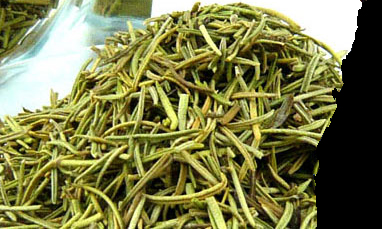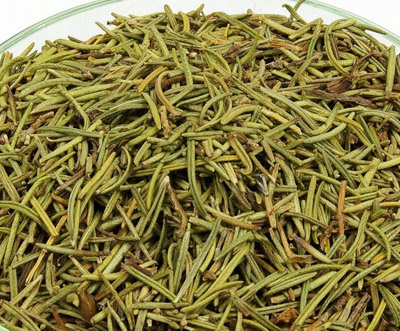Tunisian Rosemary is an aromatic in the mint family that grows on an evergreen bush. It is most often used in cooking but has a wonderful woodsy scent and is also great in air fresheners and aromatherapy mixes.Rosemary of tunisia is an leaves extracted from the Rosemary herb. Since rosemary has been a staple herb in most gardens, its leaves is also very popular. Rosemary leaves is clear, highly fragrant oil which smells much like the herb. Rosemary of tunisia is widely used in many home and medicinal applications. One can find it everywhere, in candles, aromatherapy massage oils, scented candles, soaps, shampoos and many natural medicines. Its aroma is very pervading in the environment and deeply interacts with a person’s mood and can change it too.
One of the traditional uses of rosemary of tunisia is to promote hair growth, though there is not much scientific evidence to prove this. However, a recent study on lab mouse showed that topical administration of Tunisian rosemary leaf extract (RO-ext, 2mg/day/mouse) improved hair re-growth in mice that experienced hair re-growth interruption induced by testosterone treatment, suggesting an anti-androgenic activity mechanism of rosemary extract. The study published in the journal Phytotherapy Research concluded that rosemary extract is a promising crude drug for hair growth.
Tunisian Rosemary herb gets its name from the Latin words meaning "dew" and "of the sea". Even though it was found mostly in the Mediterranean climates, today it's grown almost everywhere in the world. You're probably quite familiar with this aromatic spice because it has a lovely flavor that is well suited to a wide variety of foods including stews, meats, fish, salads or soups.
Rosemary (Rosmarinus officinalis) is a fragrant evergreen herb native to the Mediterranean. It is used as a culinary condiment, to make bodily perfumes, and for its potential health benefits.Tunisian Rosemary of tunisia(Rosmarinus officinalis CT cineol) has a fresh, herbaceous, sweet, slightly medicinal aroma. An energizing , it may be beneficial for helping to restore mental alertness when experiencing fatigue.* It is also a popular ingredient in skin and hair care products. This Rosemary of tunisia should be diluted before use and is recommended for adult use only. Rosemary may also be used to enhance the flavor of foods while cooking
The herb not only tastes good in culinary dishes such as rosemary chicken and lamb, but it is also a good source of iron, calcium, and vitamin B6. It is typically prepared as a dried whole herb or a dried powdered extract, while teas and liquid extracts are made from fresh or dried leaves.Tunisian Rosemary leaves has a huge list of therapeutic properties which have pharmacological applications and at home too. These properties reassert why rosemary leaves is so widely used since ancient times. Rosemary Leaves has been proven effective in treating scalp conditions, including hair loss and dermatitis of the scalp. Learn how to apply it from natural beauty products expert Spirit Demerson in this beauty
Rosemary of tunisia is a member of the mint family Lamiaceae along with many other herbs, such as oregano, thyme, basil, and lavender. Rosemary (Rosmarinus officinalis) is widely used as a spice when cooking, especially in Mediterranean dishes. It is also used for its fragrance in soaps and other cosmetics. Traditionally,Tunisian rosemary has been used medicinally to improve memory, relieve muscle pain and spasm, stimulate hair growth, and support the circulatory and nervous systems. It is also believed to increase menstrual flow, act as an abortifacient (causing miscarriage), increase urine flow, and treat indigestion. Almost none of these uses have been studied scientifically in humans. However, one study in humans found that long term daily intake of Tunisian rosemary prevents thrombosis.





